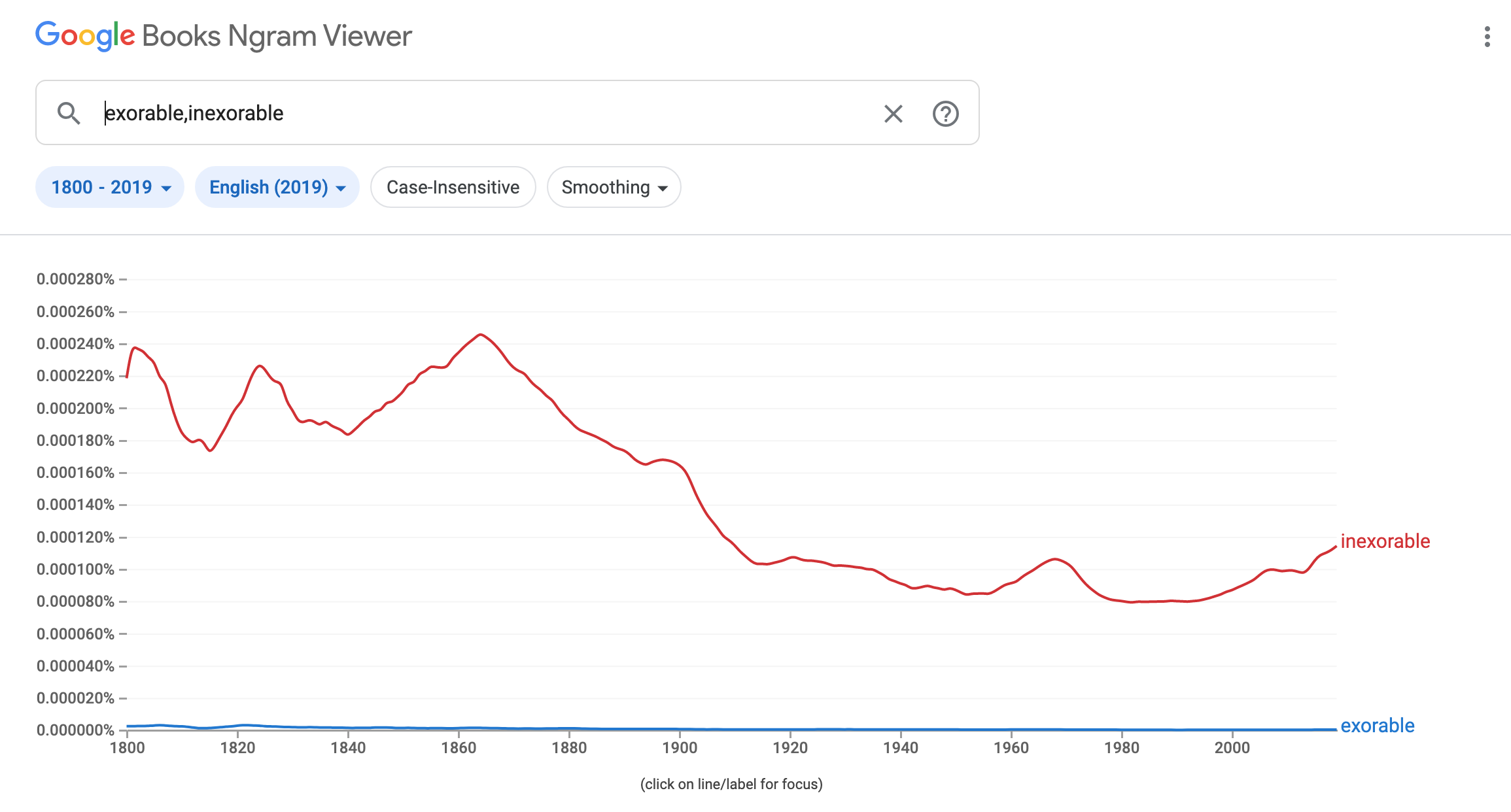Oro
Published: 2022-01-02In English, there are some different expressions that are pronounced similarly. For example, “ice cream” and “I scream” are pronounced in the same or similar way. These words are sometimes called oronyms. The oro part of oronym comes from the Latin ōrō, meaning “I orate” or “I pray”.
Oral and orate are clearly derived from this origin. Let’t see some more common words.
adore
One meaning of the word adore is “to worship” (ad- (to) + ōrō (I pray)). The sense “to like very much” subsequently became common.
inexorable
The adjective inexorable1 means “incapable of being persuaded”, or simply “relentless”.
This word is the combination of in- (denoting negation), Latin exōrō (I persuade), and -able, where exōrō can be further split into ex- (out) and ōrō, which is totally understandable.
The English word exorable also exists and means “capable of being persuaded”, but it is rarely used today.

osculate
In Latin, ōrō comes from the noun ōs, meaning “mouth”. Latin ōsculum means “a kiss” or “a little mouth”, which is composed of ōs and the diminutive suffix -culum. Thus, English osculate generally means “to kiss”.
usher
English word usher is often used in the sense “to show someone where they should go”. This word ultimately comes from the Latin ōs, via the Latin ōstium (meaning “door”) and the Old French ussier (meaning “doorman”).
-
U.S. /ɪnˈɛksərəb(ə)l/ ↩